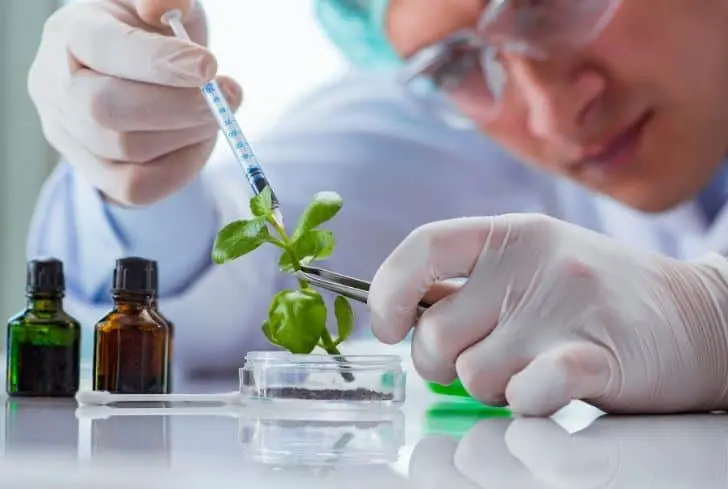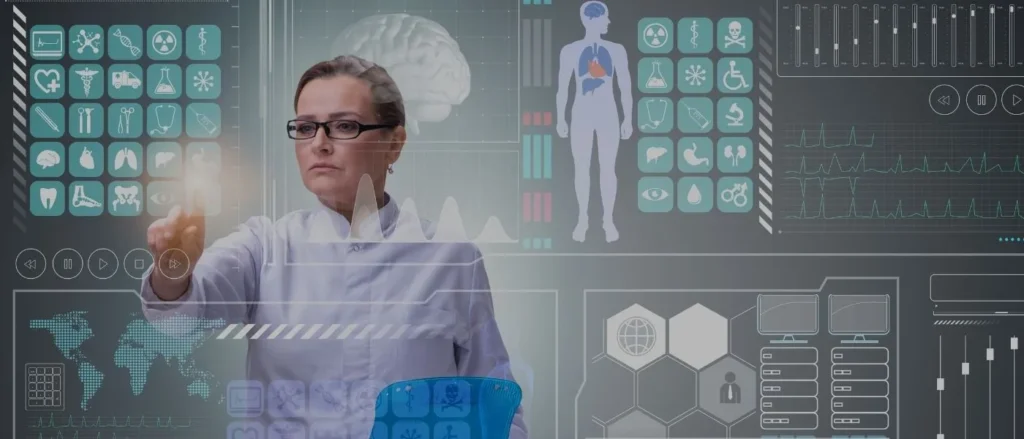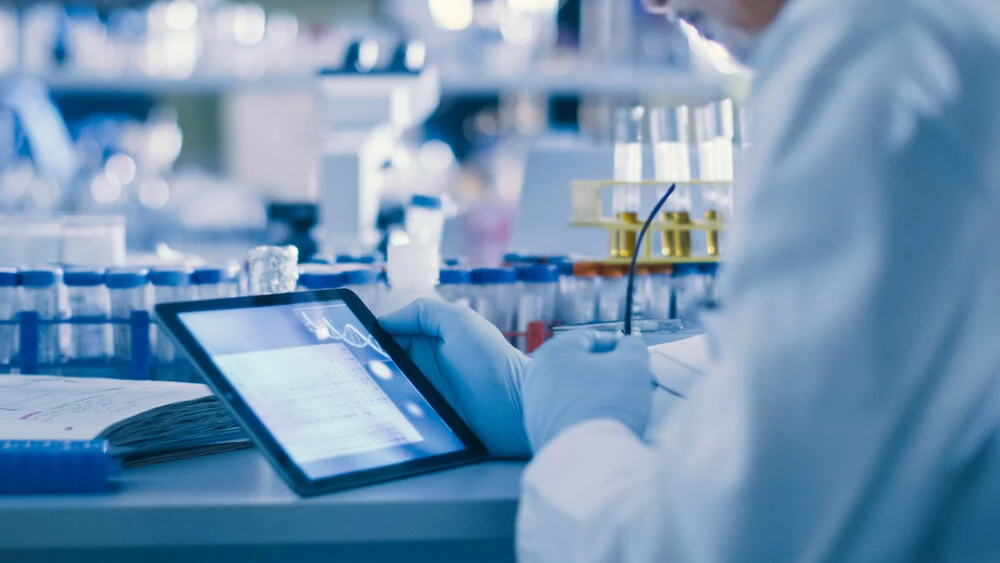In the modern world, science and technology are evolving at a rapid pace. Two fields at the forefront of this evolution are biotechnology and bioinformatics. Both disciplines play crucial roles in understanding biological processes and solving medical and environmental issues. However, they differ in their approaches, tools, and applications.
This article will delve into between biotechnology vs bioinformatics, explore their respective career prospects, and help you determine which might be the right choice for you in today’s world.
What is Biotechnology?
Biotechnology involves using living organisms, cells, and biological systems to develop products and technologies that improve human life and the health of our planet. This field encompasses a wide range of applications, from agriculture and medicine to industrial processes.
Key Areas of Biotechnology
- Medical Biotechnology: Focuses on developing drugs, vaccines, and diagnostic tools. Techniques like genetic engineering and cell therapy are commonly used.
- Agricultural Biotechnology: Involves improving crop yields, pest resistance, and nutritional value through genetic modification.
- Industrial Biotechnology: Uses enzymes and microorganisms to produce biofuels, bioplastics, and other sustainable materials.
- Environmental Biotechnology: Aims to solve environmental problems through bioremediation, waste management, and conservation efforts.
Real-Life Applications of Biotechnology
- CRISPR Gene Editing: CRISPR technology allows precise editing of DNA, enabling the development of treatments for genetic disorders such as cystic fibrosis and muscular dystrophy.
- Genetically Modified Organisms (GMOs): Crops like Bt corn and Roundup Ready soybeans are engineered to be pest-resistant and herbicide-tolerant, improving agricultural productivity and reducing the need for chemical inputs.
- Biopharmaceuticals: Biotech companies produce therapeutic proteins and antibodies used to treat diseases like cancer, rheumatoid arthritis, and diabetes.
- Biofuels: Microorganisms are engineered to convert biomass into renewable energy sources like ethanol and biodiesel, providing sustainable alternatives to fossil fuels.

What is Bioinformatics?
Bioinformatics is an interdisciplinary field that combines biology, computer science, and information technology to analyze and interpret biological data. The main goal is to understand the genetic and molecular mechanisms of diseases and biological processes.
Key Areas of Bioinformatics
- Genomics: Analyzes genome sequences to identify genes and their functions.
- Proteomics: Studies protein structures and functions.
- Transcriptomics: Examines RNA transcripts to understand gene expression.
- Metabolomics: Investigates metabolic pathways and their interactions.
- Systems Biology: Integrates data from various biological fields to model complex biological systems.
Real-Life Applications of Bioinformatics
- Human Genome Project: The sequencing and analysis of the human genome have provided insights into genetic variations linked to diseases and traits, paving the way for personalized medicine.
- Cancer Genomics: Bioinformatics tools are used to identify genetic mutations and expression patterns in tumors, aiding in the development of targeted therapies and diagnostic markers.
- Drug Discovery: Computational modeling and simulations help identify potential drug targets and predict the interactions between drugs and biological molecules, accelerating the drug development process.
- Metagenomics: Analyzing DNA from environmental samples allows the study of microbial communities in ecosystems, contributing to environmental conservation and the discovery of new enzymes for industrial applications.
Biotechnology vs Bioinformatics: Key Differences
Approach and Methodology
- Biotechnology: Primarily experimental and laboratory-based. Involves hands-on manipulation of biological materials.
- Bioinformatics: Computational and data-driven. Involves analyzing large datasets using algorithms and software.
Tools and Techniques
- Biotechnology: Utilizes tools like PCR (polymerase chain reaction), CRISPR (gene editing), and cell culture.
- Bioinformatics: Employs tools like sequence alignment software, molecular modeling programs, and statistical analysis software.
Applications
- Biotechnology: Directly creates products and technologies. Examples include developing new medications, creating genetically modified organisms (GMOs), and producing biofuels.
- Bioinformatics: Provides insights and predictions. Examples include identifying disease-causing genes, predicting protein structures, and analyzing genetic variations.

Education and Skills
Biotechnology
To pursue a career in biotechnology, one typically needs a background in biology, chemistry, and related sciences. Key skills include laboratory techniques, knowledge of molecular biology, and an understanding of genetic engineering.
Bioinformatics
A career in bioinformatics requires a solid foundation in biology as well as computer science. Key skills include programming, data analysis, knowledge of algorithms, and an understanding of biological databases.
Career Opportunities
Biotechnology
- Research Scientist: Conducts experiments and develops new biotechnological products.
- Bioprocess Engineer: Designs and optimizes processes for large-scale production of biotechnological products.
- Clinical Research Coordinator: Manages clinical trials for new drugs and therapies.
- Regulatory Affairs Specialist: Ensures compliance with regulations in the development and marketing of biotechnological products.
Bioinformatics
- Bioinformatics Scientist: Analyzes biological data to gain insights into genetic and molecular processes.
- Computational Biologist: Develops algorithms and models to study complex biological systems.
- Data Analyst: Interprets large datasets to find patterns and correlations in biological research.
- Software Developer: Creates tools and software for biological data analysis.
Biotechnology vs Bioinformatics: Job Market
Biotechnology
The job market for biotechnology is robust, particularly in the pharmaceutical and agricultural sectors. Biotechnology jobs often require advanced degrees (Master’s or Ph.D.), and salaries can vary widely depending on the role and experience level. Research scientists and bioprocess engineers, for instance, can earn substantial salaries, with potential for growth as they gain experience and take on leadership roles.
Bioinformatics
Bioinformatics is experiencing rapid growth due to the increasing amount of biological data generated by new technologies. Demand for bioinformatics professionals is high in academia, research institutions, and the biotech industry. Bioinformatics companies are rapidly expanding, offering numerous opportunities for career growth. As a bioinformatics scientist, you can work on cutting-edge research and development projects. Additionally, bioinformatics projects for students provide hands-on experience and pave the way for future innovations in the field.
Entry-level positions may require only a Bachelor’s degree, but higher-level roles typically require advanced degrees. Bioinformatics scientists and computational biologists often enjoy competitive salaries and opportunities for advancement.
Biotechnology vs Bioinformatics: Salary Range
The earning potential in biotechnology vs bioinformatics can vary widely depending on factors such as education, experience, location, and the specific industry or sector. However, here are some general trends:
Biotechnology Earnings
Entry-Level Positions
- Research Scientist: Starting salaries typically range from $50,000 to $70,000 per year.
- Bioprocess Engineer: Entry-level positions usually offer between $60,000 and $80,000 annually.
Mid-Level Positions
- Senior Scientist: Can earn between $80,000 and $120,000 per year.
- Clinical Research Manager: Salaries range from $90,000 to $130,000 annually.
Senior-Level Positions
- Director of Biotechnology: Can earn between $120,000 and $200,000 or more per year.
- Chief Scientific Officer (CSO): Salaries can exceed $200,000 annually, especially in large pharmaceutical companies.
Bioinformatics Earnings
Entry-Level Positions
- Bioinformatics Scientist: Starting salaries typically range from $60,000 to $80,000 per year.
- Data Analyst: Entry-level positions usually offer between $50,000 and $70,000 annually.
Mid-Level Positions
- Senior Bioinformatics Scientist: Can earn between $90,000 and $120,000 per year.
- Computational Biologist: Salaries range from $80,000 to $110,000 annually.
Senior-Level Positions
- Bioinformatics Director: Can earn between $120,000 and $180,000 or more per year.
- Chief Data Scientist: Salaries can exceed $180,000 annually, especially in biotech companies and research institutions.
Moreover, bioinformatics salary by country can also be explored before making a career choice.
Comparison and Factors Influencing Earnings
- Industry: Biotechnology professionals in the pharmaceutical industry tend to earn more compared to those in agriculture or environmental sectors. Similarly, bioinformatics professionals in genomics or pharmaceutical research often earn higher salaries.
- Education: Advanced degrees (Master’s or Ph.D.) typically lead to higher earning potential in both fields.
- Experience: More experienced professionals command higher salaries. Senior roles in both biotechnology and bioinformatics offer significantly higher compensation compared to entry-level positions.
- Location: Salaries vary by location, with higher wages in regions with a high cost of living or a strong biotech presence, such as the San Francisco Bay Area, Boston, and New York.

Biotechnology vs Bioinformatics: Pros and Cons
Biotechnology
Pros:
- Hands-on work with tangible results.
- Diverse applications in various industries.
- Potential for groundbreaking discoveries and innovations.
Cons:
- Requires extensive laboratory work.
- Regulatory hurdles can slow down product development.
- May involve long hours and meticulous work.
Bioinformatics
Pros:
- High demand for data analysis skills.
- Opportunities to work remotely.
- Interdisciplinary field with diverse applications.
Cons:
- Requires strong computational and programming skills.
- Can be less tangible than laboratory work.
- Rapidly changing technology requires continuous learning.
Biotechnology vs Bioinformatics: Which is the Right Career Choice?
The decision between a career in biotechnology or bioinformatics depends on your interests, skills, and career goals. Here are some factors to consider:
- Interest in Hands-On Work vs. Data Analysis:
- If you enjoy laboratory work and hands-on experimentation, biotechnology might be the better fit.
- If you prefer working with data and developing computational models, bioinformatics could be the right choice.
- Educational Background:
- Those with a strong foundation in biology and chemistry may find biotechnology more accessible.
- Those with skills in computer science, programming, and data analysis may be better suited for bioinformatics.
- Career Goals:
- Biotechnology offers opportunities to create new products and technologies that can have immediate impacts.
- Bioinformatics provides a chance to contribute to the understanding of complex biological systems and diseases, often leading to long-term advancements in science and medicine.
- Job Market and Stability:
- Both fields offer strong job prospects, but bioinformatics is currently experiencing faster growth due to the explosion of biological data and the need for data analysis expertise.
- Biotechnology continues to be vital in pharmaceuticals, agriculture, and environmental applications, providing stable and rewarding career opportunities.
Biotechnology vs Bioinformatics: Conclusion
In the debate of biotechnology vs bioinformatics, there is no one-size-fits-all answer. Both fields offer exciting and rewarding career paths with significant contributions to science and society. Your choice should align with your personal interests, skills, and long-term career aspirations.
If you are passionate about laboratory work, developing new technologies, and seeing tangible results, biotechnology might be the right path for you. On the other hand, if you are fascinated by data analysis, computational modeling, and the potential to uncover hidden patterns in biological data, a career in bioinformatics could be your ideal choice.
Ultimately, whether you choose biotechnology or bioinformatics, both fields promise a dynamic and impactful career, contributing to advancements that can change the world.



